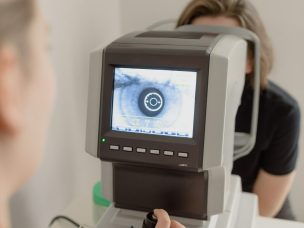The standard treatment for patients with wet AMD is antivascular endothelial growth factor therapy. Although effective, this treatment’s need for costly lifelong injections makes it less than ideal. Gene therapy for wet AMD can allow for the sustained delivery of antiangiogenic proteins, resulting in potentially less burdensome treatment for patients.
This study, published in The British Journal of Ophthalmology, reviews several emerging and established gene therapies for wet AMD. These therapies include pigment epithelium-derived factor, sFLT-1 (a highly potent VEGF-A inhibitor), ADVM-022 (which provides continuous delivery of aflibercept), and RGX-314 (which codes for a ranibizumab-like anti-VEGF protein), among others.
Each of these gene therapeutic modalities is described in detail, with special attention to past and ongoing trials as well as specific drawbacks and benefits.
The researchers concluded that gene therapy for wet AMD is likely to grow into a substantially more effective and safer treatment option in the future. They noted that understanding the causes of immune-mediated responses to viral vector administration could drastically improve the potential of gene therapy as a treatment for wet AMD [1].
Source:
[1] Guimaraes, T. A. C. D., Georgiou, M., Bainbridge, J. W. B., & Michaelides, M. (2020). Gene therapy for neovascular age-related macular degeneration: rationale, clinical trials and future directions. British Journal of Ophthalmology, 105(2), 151–157. https://doi.org/10.1136/bjophthalmol-2020-316195










